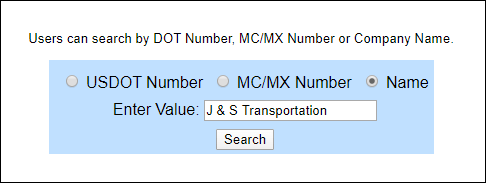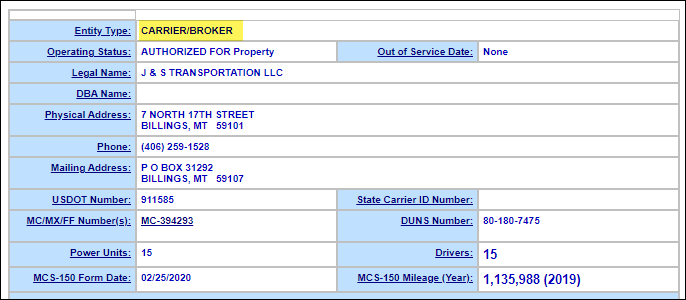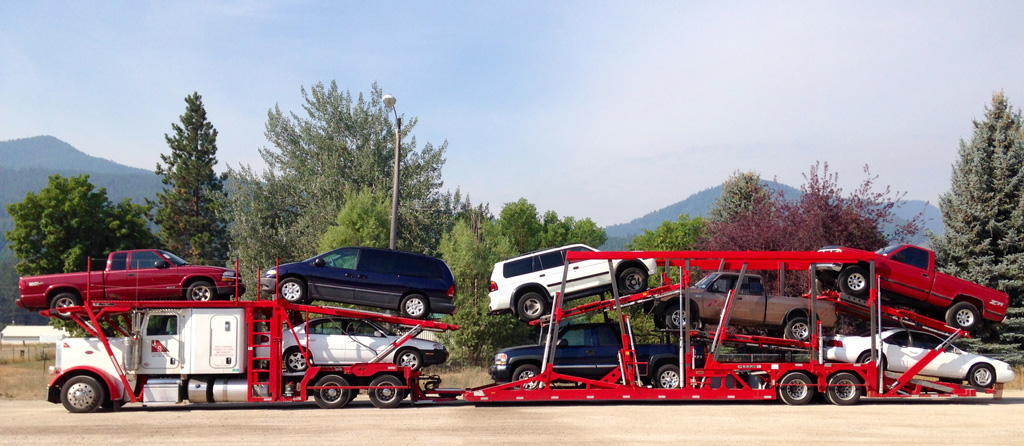After your house, your car is often the second most valuable asset you have. Deciding what auto transportation company to use to ship your vehicle isn’t a decision to take lightly and can be very stressful.
Safety, speed, customer service, reliability, and the cost to ship a car are all important factors you have to evaluate when making a decision. As you begin your search, you’ll come across three types of auto transport companies: brokers, carriers, and broker-carriers. Our goal is to help you understand what the differences are among these three types and which one might be best for you.
What are Auto Transport Brokers?
Auto transport brokers are companies or individuals that have access to a large network of carriers. They don’t actually have their own fleet of trucks and as a result they don’t handle the direct shipping of any vehicles. They are the “middleman” between the customer and the carrier.
The brokers primary function is to find and vet the best carriers for each customer given their vehicle type and shipping time frame. Another important role they have is to manage, or coordinate, all car shipments on behalf of their customers.
When you Google “auto transport companies” or “car shipping companies,” the search results will consist primarily of brokers. Most carriers don’t have websites and those that do aren’t usually great at online marketing, so you rarely find them doing Google searches. That’s important to know because if you begin your search online, you’ll most likely run across brokers and not carriers.
What are Car Carriers?
Car carriers have their own truck or fleet of trucks. These companies do the actual shipping of vehicles. They are the ones that show up to pick up the vehicle and deliver it to its destination. The majority of carriers are “moms and pops” with one or two trucks. In fact, most are single owner operators. There are large car carriers too that have several trucks in their fleet, but they are not nearly as prevalent.
Side Note: Carriers go by several different names. You’ll see them referred to as car carriers, auto carriers, auto haulers, and auto transporters. They are all different names for the same thing – carriers with their own truck or fleet of trucks.
What are Broker/Carrier (or Carrier/Broker) Companies?
There is a hybrid business that you may encounter as well. These are companies that are licensed auto transport brokers, but they also have their own fleet of trucks. They are called a, “broker/carrier.” J&S Transportation is an example.
We are a licensed carrier with our own fleet of trucks, but we’re also a licensed broker with access to a network of carriers that serve the entire country. We always strive to ship cars on our own trucks first (acting as a carrier), but if we can get a vehicle to its destination quicker using one of our trusted partner carriers we will (acting as a broker).
 J&S is a carrier and a licensed auto transport broker!
J&S is a carrier and a licensed auto transport broker!
How Do I Know if a Company is an Auto Transport Broker or a Car Carrier (or Both)?
The easiest way to find out is to simply ask when you talk to these companies, but if you want to know before you even begin contacting them, there is a website that can help. You’ll want to go to the Federal Motor Carrier Safety Administration (FMCSA) website. You’ll see an option to select “Name” and then an “Enter Value” field where you can enter a company name:

Then when you navigate to the company’s profile page, you’ll see the “Entity Type” at the top of their company snapshot:

As you can see, J&S Transportation is a Carrier/Broker. As an added bonus, that same website can give you license, insurance, and DOT information for any broker or carrier!
The Pros and Cons of Working with Auto Transport Brokers
Pros of Working with Auto Transport Brokers
1. Flexibility. The main benefit of working with a broker is the flexibility they provide. Because brokers aren’t tied to their own trucks and specific routes, they can help anyone no matter what type of vehicle they have, no matter where they are shipping it to, and no matter when they are shipping it. Brokers work with large and small carriers that serve routes all over the country so they can always find a carrier to meet their customers’ needs.
2. Time Savings. Another advantage of working with a broker is the tremendous time savings. As mentioned earlier, it’s hard to find carriers directly online because most of them don’t have websites. It can be a chore just to put together a list of carriers to contact.
Once you finally do put a list together, then you’ll have to research each one to make sure they are properly licensed and insured. You’ll also have to make sure they are reputable and reliable by finding reviews online for each one. It can take a lot of time to do all this research on your own.
If you work with a broker, however, you can eliminate all those headaches as the broker will have access to thousands of carriers and will do all the vetting and research for you. They will verify licenses, insurance coverage, and USDOT credentials for every carrier they may potentially work with. Brokers are industry experts, so they know what to look for when selecting the right carrier for a given shipment.
Reputable brokers that have years of experience will also have a list of top-rated carriers at their fingertips that they can tap into to get a vehicle shipped quickly, safely, and sound. J&S Transportation is an example of that type of broker. With over 20 years of experience as a broker-carrier, J&S has formed partnerships with many carriers across the country that they know and trust. Working with these types of brokers can save you a lot of time and make the car shipping process a lot less stressful!
3. Complete Shipping Management. Yet another advantage of working with auto transport brokers is they manage and coordinate all aspects of the car shipping process. Acting as the middleman, brokers handle all the communications between the carrier and the customer from beginning to end, at least that’s what they’re supposed to do!
That’s what makes J&S Transportation unique from other brokers. They handle all aspects of the car shipping process from beginning to end. They don’t hand you off to a carrier or leave you in the dark. J&S Transportation is your contact from beginning to end and will communicate with you regularly throughout the process.
Cons of Working with Auto Transport Brokers
1. More people involved. When you work with a broker, you’re adding another person in the shipping process. You’re working with a middleman. As I just mentioned above, if a broker is good at what they do this is actually a good thing. Unfortunately, a lot of brokers aren’t the greatest managers and communicators so they just gum up the process. You’d be better off dealing directly with the carrier.
2. More expensive. Because you’re working with a middleman when you work with a broker, you’ll pay more. Think of carriers as wholesalers and brokers as retailers. You pay “retail price” when you work with brokers.
Pros and Cons of Working Car Carriers
Pros Working with Car Carriers
1. You’ll pay less. There are two main advantages working directly with a carrier. The first advantage is you will probably pay less because there is no middleman (i.e. a broker). That isn’t always the case but usually you will pay less working directly with a carrier.
2. One point of contact. The second advantage is you have one point of contact. You will work with the carrier’s dispatcher and in many cases you will even be dealing directly with the driver that will be picking up and delivering your vehicle. Having direct contact with the carrier’s dispatcher or driver will allow you to get more specific and thorough updates. And if any problems come up it’s usually easier to get them resolved if you’re working directly with the carrier vs. someone in the middle.
Cons of Working with Car Carriers
1. Hard to find. Working directly with carriers does have its challenges, however. The first being it’s hard to find them. Most carriers are single driver, or solo carriers, who don’t have the time, money, or interest in marketing themselves directly to the public. Their full-time job is to pick up and deliver vehicles! As a result, most don’t have a website or the knowledge on how to get their website ranked in Google even if they do have a website.
Because of that, most carriers work closely with brokers or they find shipments available on national load boards that aren’t available to the public. There are exceptions, of course. Some carriers are big enough to market themselves directly to the public, so they don’t have to rely heavily on brokers or load boards.
2. Fewer options. The other challenge when working directly with carriers is finding one that can ship your specific type of vehicle, on your specific shipping route, and on your time table.
To be profitable, carriers have to be smart and efficient in how they operate their business. For starters, carriers have to decide what specific type of trailer to use in their fleet, and how many trucks they’re going to have in their fleet. Are they going to have 3-car trailers or 9-car trailers? Are they going to have enclosed or open trailers? Are they going to go with one truck or three trucks? Whatever they choose will dictate what type of vehicles they can haul, how many they can haul, and what they have to charge.
Since most carriers have fewer than 3 trucks in their fleet, they can’t cover the entire country. They have to determine what specific routes they’ll cover. They’ll obviously choose specific routes that are the most profitable for them which might not be the route your car needs to be shipped on.
All of this means is you’ll have to make a lot of calls or have a lot of patience to find a carrier that has room on their trailer for your type of vehicle and is running your specific route on your specific time table.
The best option when working with an auto carrier is to work with the “big boys” in the industry as they have fleets large enough to cover routes throughout the country. You will usually pay more to work with these larger carriers, however, and there still may be a bit of a wait to get your car shipped. Even these large carriers have limited resources. They may only have one truck running back and forth on their routes so the timing of the shipping of your vehicle will depend on where their truck is on that route.
3. Lackluster customer service & communications. The final challenge to working directly with a carrier is that you don’t always get the greatest customer service and communications. Most carriers are single driver owners who are truck drivers first and foremost. Providing great customer service and regular communications usually aren’t their priorities.
What Auto Transport Brokers and Car Carriers Have in Common
Up to this point we’ve highlighted the pros and cons of these two types of auto transport companies and how they differ, but there are similarities between the two that you need to be aware of.
Auto transport brokers and car carriers must register with the FMCSA and DOT and be licensed. It’s not right to assume that you’re in better hands working with one type of company over another. To be in the car shipping business as either a broker or carrier there are strict requirements.
No matter what a broker or carrier tells you, or no matter what you read on their websites, neither brokers nor carriers can guarantee pick up dates and delivery dates. There are too many variables on the road that can impact actual pick up and delivery dates. Weather, traffic, construction, accidents, truck breakdowns, and pick up and delivery delays along the route make it impossible for anyone to guarantee a specific pick up and delivery date.
Finally, most brokers and carriers are door-to-door shippers – meaning, they will pick up and deliver your vehicle from your home or business and ship it to another home or business location. They don’t use terminal yards as their pick up and shipping destinations, although some do so be sure to ask before you book!
And in case you’re wondering, terminal-to-terminal shipping is when a carrier has terminal yards that they use as pick up and delivery points. In those cases, you will have to get your vehicle to the terminal yard for pick up and arrange to pick it up at another terminal yard. These terminal yards may be far away from you and there may be terminal storage fees so be sure to ask questions so there aren’t any surprises!
Side Note: Door-to-door shipping often times doesn’t mean literally from the front door of your house to another door of another house. Many residential areas have narrow streets or city ordinances that don’t allow semi-trucks or trucks over a given weight. Door-to-door shipping usually means meeting a driver at a nearby big box store or grocery store, or anywhere where a large truck and trailer can get into and out of without breaking any laws.
J&S Transportation – The Best of Both Worlds

At the end of the day, auto transport brokers and car carriers will get your vehicle shipped from point A to point B. Should you use a broker for auto transport or a carrier? Which one is best for you depends on what you’re looking for and what your specific situation is. Hopefully, this article answers your questions and helps you decide which type of auto transport company is going to work best for you.
If you’re still stuck and not sure which one is best for you, J&S Transportation may be the best option yet. Working with J&S Transportation gives you the best of both worlds. We are primarily an auto hauler carrier with our own fleet of trucks, but we are also a licensed broker. We will ship your car door-to-door on one of our trucks whenever possible.
However, if we can get your vehicle shipped quicker by brokering it to one of our trusted partner carriers without compromising safety and the excellent customer service we are known for, we will.
In addition to our reputation for outstanding customer service as shown on third party sites such as TransportReviews.com, Google, and the BBB, we pride ourselves on our straight-forward and honest communication throughout the entire process. When you work with J&S acting as either a carrier or a broker, we are your ONE point of contact throughout the entire shipping process.
Whether you work with J&S or another broker or carrier, it all starts with getting quotes. Get started today by getting an instant quote from us!

